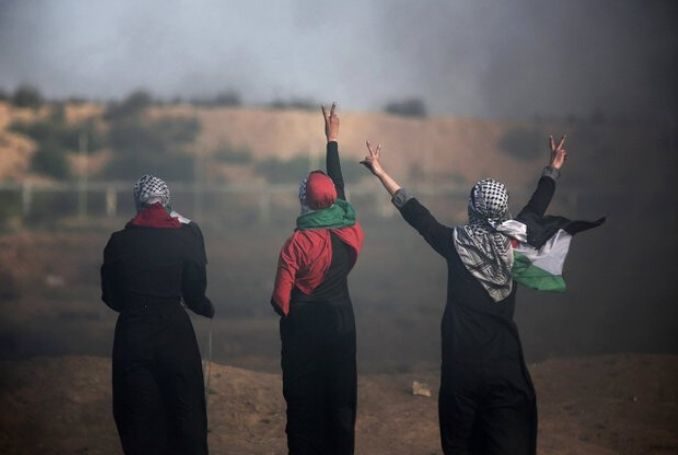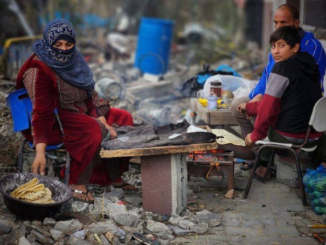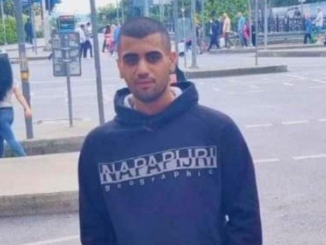
By Benay Blend
“Bill Clinton has a penchant for overstepping,” writes Barbara Ransby, “for going too far and for being too cocky, especially when it comes to Black people.” In particular, his presumption of “insider posture” at the recent funeral of civil rights icon John Lewis was, for Ransby, “quite frankly, offensive.”
In this case, former President Bill Clinton took the liberty of declaring “who was a good Black leader vs. who was a not-so-good Black leader,” by referring to Lewis and Kwame Ture (formerly Stokely Carmichael) — both former leaders of the Student Non-Violent Coordinating Committee (SNCC) — respectively.
“There were two or three years there where the movement went a little bit too far towards Stokely,” Clinton declared. “But in the end, John Lewis prevailed.”
“WOW. This is so tone deaf. So disrespectful. So inaccurate,” tweeted BET host Marc Lamont Hill. “This is what happens when we let people think they got a cookout seat,” referring to another kind of seat, at the proverbial Black cookout to which many felt in this case that Clinton did not belong.
“Perhaps these are the categories Clinton has for Black political figures,” she concludes, “the good ones” who exist within his comfort zone, and the others who do not.
This simplistic dichotomy has been applied, too, to Palestinians freedom fighters, those who are non-violent (conveniently ignoring the violence that is always directed at them) and those who believe, as does the Geneva Convention, that the occupied are justified to use any means necessary to gain their liberation.
In this vein, Ramzy Baroud traces the Clinton phenomenon as it applies to Occupied Palestinians. For some, he says, the focus on non-violence is a media strategy designed to snare the most attention. For others, mostly from the West, notes Baroud, the “driving forces” behind their adherence to non-violence might be “ideological and spiritual convictions,” persuasions that lead them away from condoning other forms of resistance.
As for Palestinians, the “non-violent brand,” Ramzy writes, is a useful “outlet” for those who have employed “automatic rifles” in order to knock off “Israel’s most wanted list for years.”
The difficulty, explains Baroud, with the “non-violence bandwagon” is that it erases the violence that Israel has used both in the West Bank and Gaza, while at the same time “places it solely on the shoulders of the Palestinians.”
Finally, Baroud continues, Palestinians have employed non-violent as well as violent resistance for decades, depending on the circumstances at the time. For these reasons the dichotomy between both strategies, as Clinton presented at Lewis’ funeral and as Baroud outlines it here, is that it “reduces and simplif[ies]” the past by presenting non-violence as the only acceptable strategy for all times.
“Misreading history often leads to an erroneous assessment of the present,” Baroud concludes, “and thus a flawed prescription for the future.”
Indeed, speaking on Facebook of Clinton’s disparagement of her brother, Mawusi Ture charged that
“When Slick Willie spoke at John Lewis’s homegoing service, he was speaking in much code; JL and others who were in SNCC have been rewarded for not being politically radical like my big brother Kwame Ture, Jamil Al-Amin (H. Rap Brown), and many others. He was also throwing a diss at BLM and all the current protests against police brutality, “be a good boy like John Lewis, don’t be a angry Black man like Stokely Carmichael! And remember, BLM and others across this country disrupted several Killary Clinton campaign events in 2016, including here in Phill.”
Clinton’s words, then, had ramifications far beyond the podium. “If anyone prevailed in the civil rights movement,” claims Branden Janese, writing for The North Star, “it was Clinton and wealthy white men like him, because the same systemic racism that elected Clinton and demonized Kwame Ture still fuels America’s obsession with her Black citizens.”
Alas, however, his words just might have backfired. Bill Clinton should “never mentioned my big brother Kwame Shaka Ture,” warns Mawusi Ture, “at John Lewis’ homegoing service. He has only increased his popularity and YouTube is about to crash as so many young people rush there to copy and then paste his various speeches to their social media.”
Moreover, she adds, “some of his most powerful speeches are those against Zionism and the democratic party,” thereby adding another link that ties Bill Clinton’s recent faux pas to the future of Palestinian resistance.
Misreading the past also allows those in power to place “good” activists on a pedestal, by whitewashing those histories, such as that of Nelson Mandela, who did not always practice non-violence, but also by privileging those who follow the least-threatening-to-the-power-structure approach.
Indeed, as Ransby notes, Kwame Ture made “enormous personal sacrifices toward his vision of liberation,” including calling for the end of “capitalism, white supremacy, imperialism and paternalistic white liberalism.” After working with the Black Panther Party, he moved to West Africa where he founded the All-African People’s Revolutionary Party.
When Ture died in 1998, she continues, “there were no former presidents at his memorial, no horse-drawn carriages to ceremoniously carry him to lie in state and no televised tributes. His homecoming was modest, private and small.”
Nevertheless, in a C-Span video, John Lewis did pay tribute to Kwame Ture. Yet Clinton places them at opposite ends of the spectrum, thereby simplifying Lewis’ past. On the other hand, John Lewis’ record contains its own inconsistencies as perhaps was inevitable when he became part of the established political order.
For example, as Philip Weiss contends, Lewis was an early co-sponsor of Rep. Ilhan Omar’s bill that upholds that right to boycott as a free speech issue, yet he also opposed the Boycott, Sanctions, Divestment (BDS) movement and supported legislation that branded BDS as antisemitic.
Moreover, as Ali Abunimah writes, there were very few in Congress who spoke out against Israel’s calculated murder of peaceful demonstrators during the early days of the Great Return March in Gaza.
“One particular notable silence,” claims Abunimah, was that of “civil rights hero” Representative Lewis. As someone who marched with Martin Luther King in Selma, where he met police brutality determined to maintain the status quo, Lewis “might have been expected,” Abunimah says, to support protesters in Gaza who met a similar fate for much the same reasons.
Perhaps Lewis’s contradictions regarding Israel were the price he paid for having a seat at the Congressional table. As Ahjamu Umi states, anyone who “occupies [a Presidential] seat in the White House has no choice” but to behave in such a manner because “their job is upholding capitalism” which in turn maintains the status quo.
In the end, there is a need for outsiders, such as Clinton, to back away from assuming an “insider” role that would allow him to make judgments about who is—and who is not—appropriate to honor for their position in the Black struggle, or for that matter the Palestinian movement, too.
“Only the unique experience of the Palestinian people,” writes Ramzy Baroud, “and their genuine struggle for freedom could yield what Palestinians as a collective deem appropriate for their own.”
“Nowadays,” adds Linah Alsaafin, Israelis, internationals, and some “enlightened” Palestinians “champion ‘nonviolent resistance’ and consider throwing a rock to be a violent act. The argument goes that throwing rocks tarnishes the reputation of Palestinians in the western world and immediately negates the ‘nonviolent/peaceful’ resistance movement. This argument falls into the trap of western- (read, colonizer) dictated methods of acceptable means to resist.”
Oppressed people, she concludes, “should not have to explain their oppression to their oppressor, nor tailor their resistance to the comfort of the oppressors and their supporters.”
Ajamu Umi states the same:
“Our progress requires constant organization backed by constant political education. The way that demon can get on television and propagate lies about our history, we need to be able to engage our people with constant and correct political education. I’m not upset at Clinton. Demons do as demons do. I’m wondering when we can grow to the level of moving past reacting to demons like him.”
The struggle must be brought back to the people themselves—Palestinian, Black, and Native American—through community work, political education, and all forms of demonstrations to take the streets.
– Benay Blend earned her doctorate in American Studies from the University of New Mexico. Her scholarly works include Douglas Vakoch and Sam Mickey, Eds. (2017), “’Neither Homeland Nor Exile are Words’: ‘Situated Knowledge’ in the Works of Palestinian and Native American Writers”. She contributed this article to The Palestine Chronicle.

– Benay Blend earned her doctorate in American Studies from the University of New Mexico. Her scholarly works include Douglas Vakoch and Sam Mickey, Eds. (2017), “’Neither Homeland Nor Exile are Words’: ‘Situated Knowledge’ in the Works of Palestinian and Native American Writers”. She contributed this article to The Palestine Chronicle.







